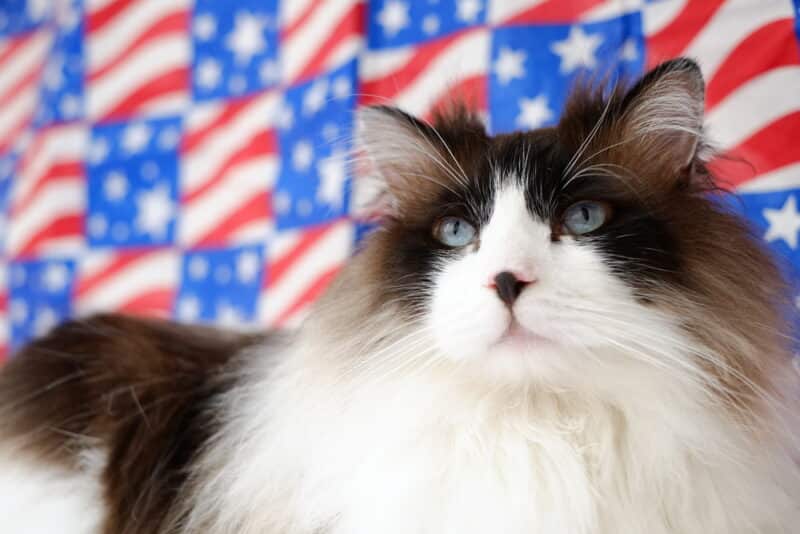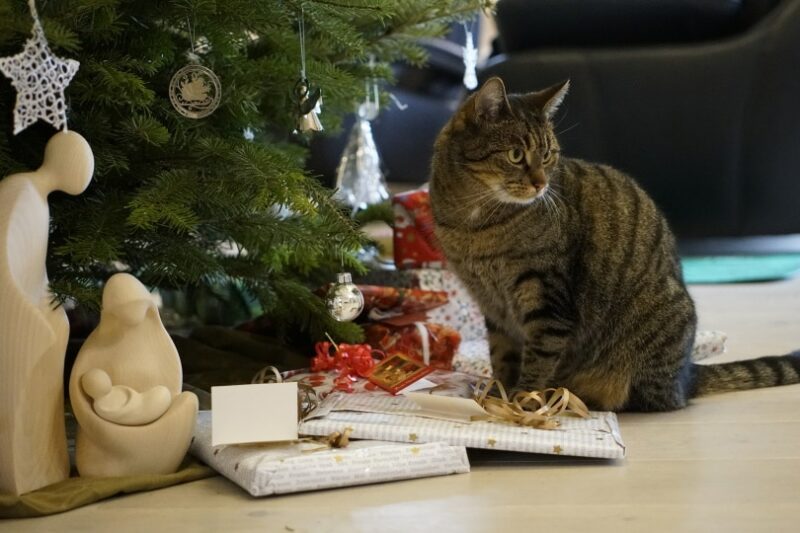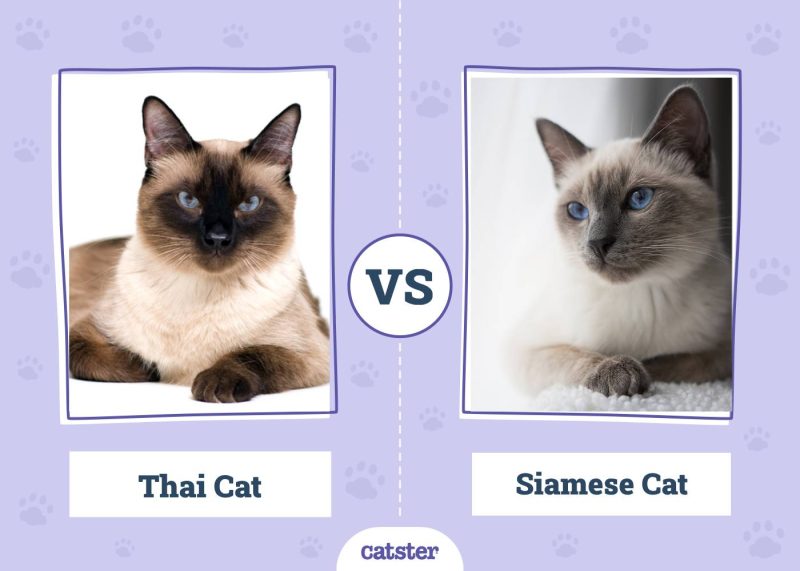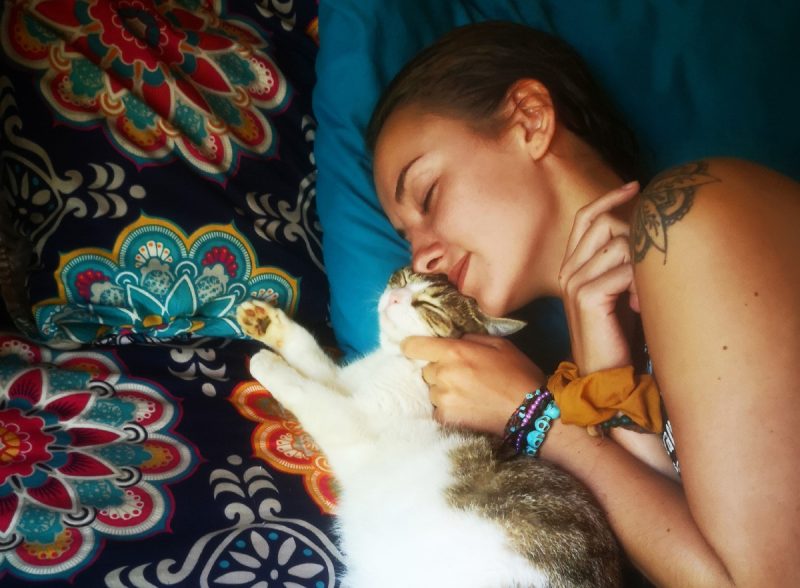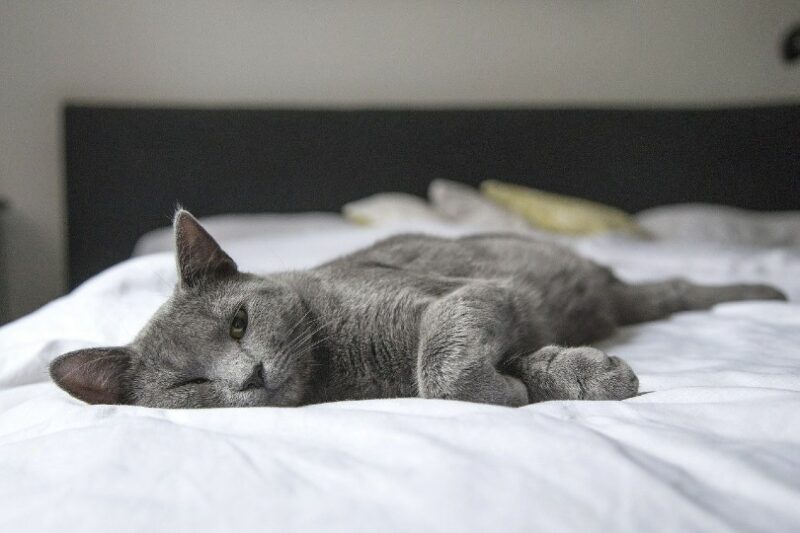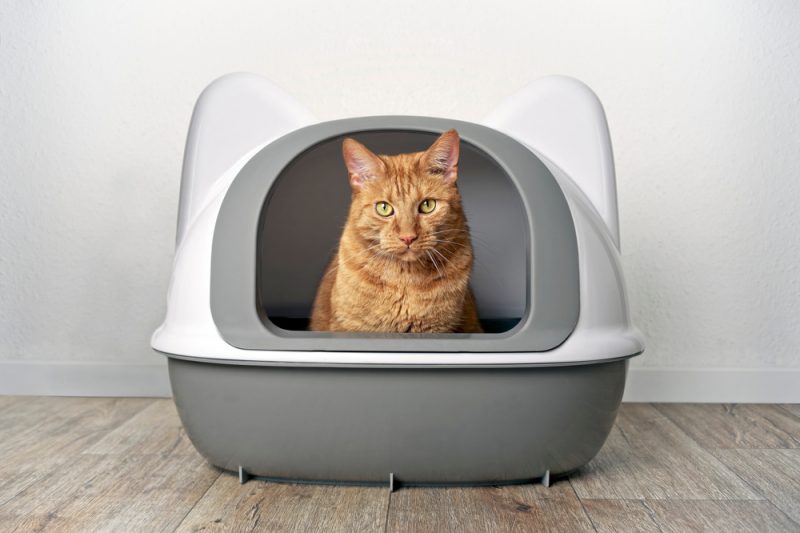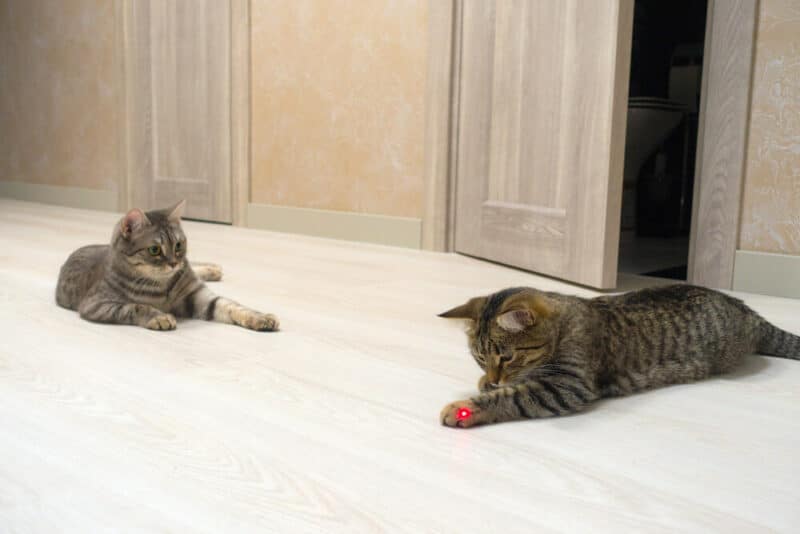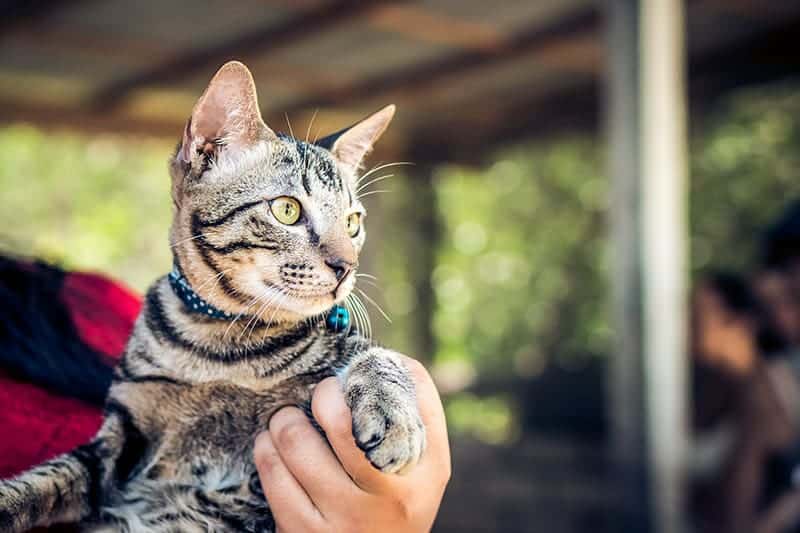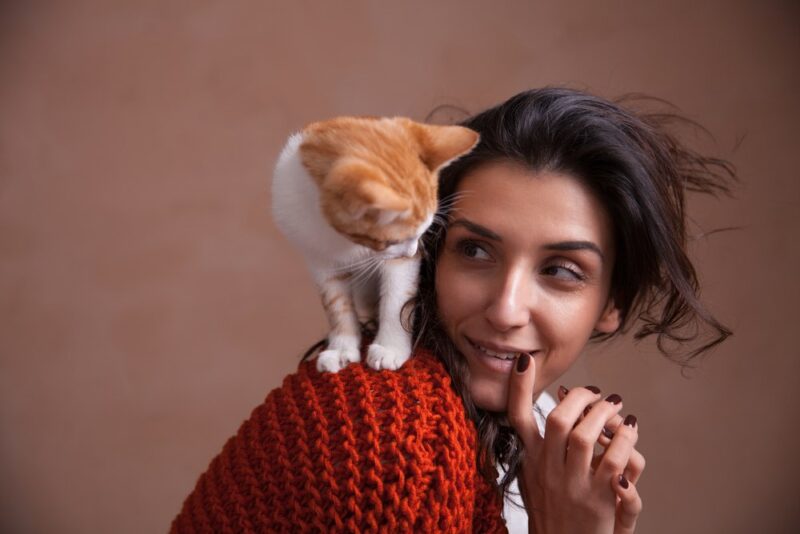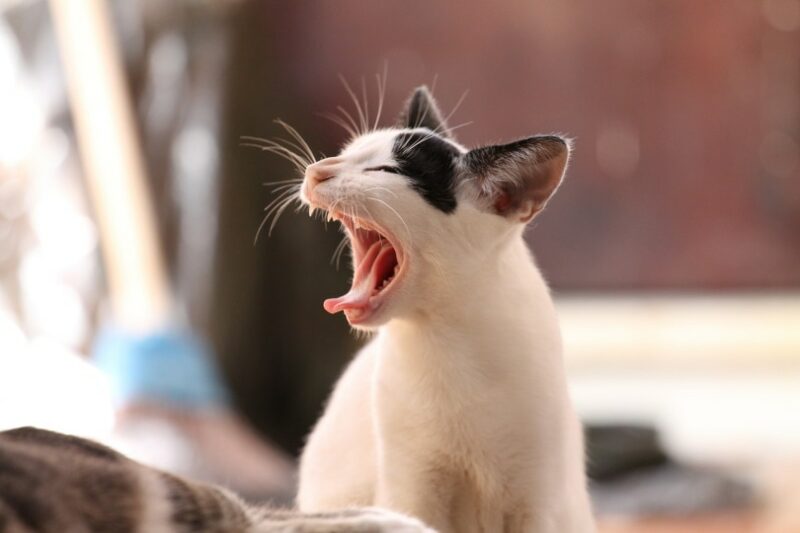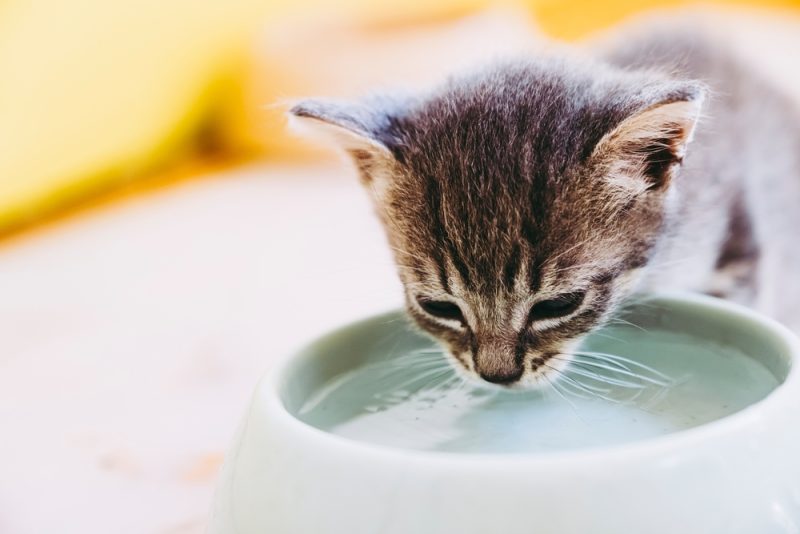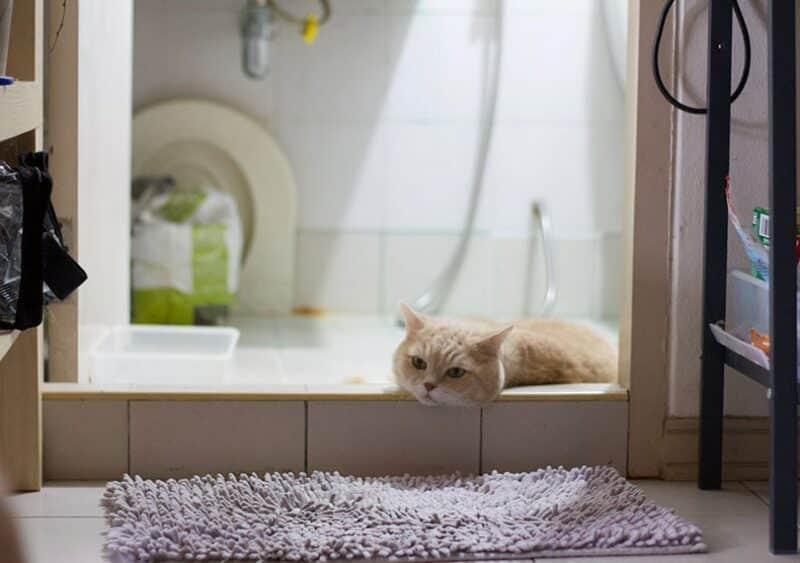In this article
As a cat owner, you know that your feline friend is no fonder of fireworks than dogs are, and they can get just as upset during this time of the year. Indoor cats will try to run and hide under furniture and beds, while outdoor cats are at risk of running into traffic. While we can’t stop the celebration, there are a few things that we can do to help reduce the impact on our pets.

The 12 Methods to Keep Your Cat Calm & Safe on the Fourth of July
1. Provide Plenty of Safe Spaces
When the fireworks start to make noise, most cats won’t waste any time retreating to the nearest hiding spot. Ensure that they can get to one fast by having plenty scattered around your home. While many cats will run under the bed or the couch, you can use cardboard boxes, duffel bags, laundry baskets, and similar items to create suitable hides by placing clothes inside. You can also set up commercial cat hides around your home.
2. Distract Them
While its effectiveness will depend on each individual cat’s personality, it’s worth trying to distract your cat with mentally stimulating games and playtime to keep them from getting too upset. Laser pens, cat wands, and catnip-infused toys are popular items, and if they are deeply involved in a game, they might ignore the loud bangs of the fireworks.
Looking for toys that will cater to the many needs of your cat? The Hepper Hi-lo Cat Scratcher is one of our favorite cat products, and it will encourage your cat to get active. Its clever three-angle design offers multiple ways for your cat to climb, stretch, and exercise. Made of a sturdy plywood base and a replacement cardboard insert, this scratcher is an option that cats can enjoy for years to come. If your cat requires a little encouragement for self-play, the Hepper Catnip Mice Toy Set is a fantastic choice for their instinctual needs. Made with natural, bite-resistant hessian fabric and filled with organic catnip. Cats can satisfy their natural prey instincts while getting the physical activity they need to thrive. At Catster, we've admired Hepper for many years, and decided to take a controlling ownership interest so that we could benefit from the outstanding designs of this cool cat company!
Image
Product
Details
Great for Exercise
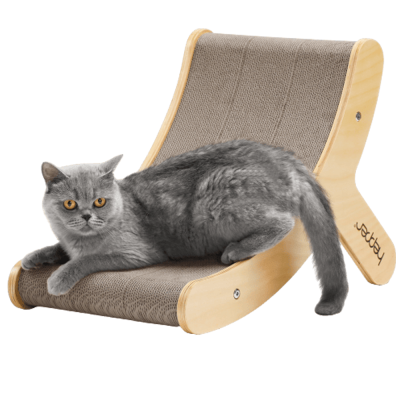
Hepper Hi-Lo Cat Scratcher
Check Price
Encourages Self-Play
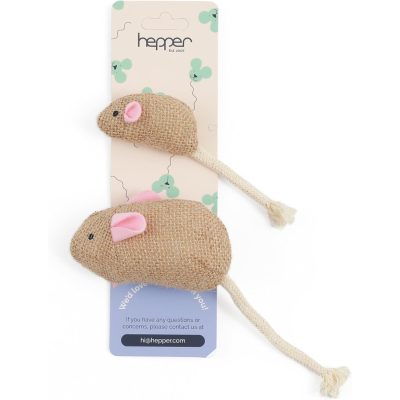
Hepper Catnip Mice Toy Set
Check Price
3. Play Soft Noises
Soft noises can help mask the loud bangs from the fireworks so they are not as noticeable to your cat. Playing soft music or using a device that creates white noise, like an air conditioner or noisy fan, can help quiet down outside noise and provide comfort.
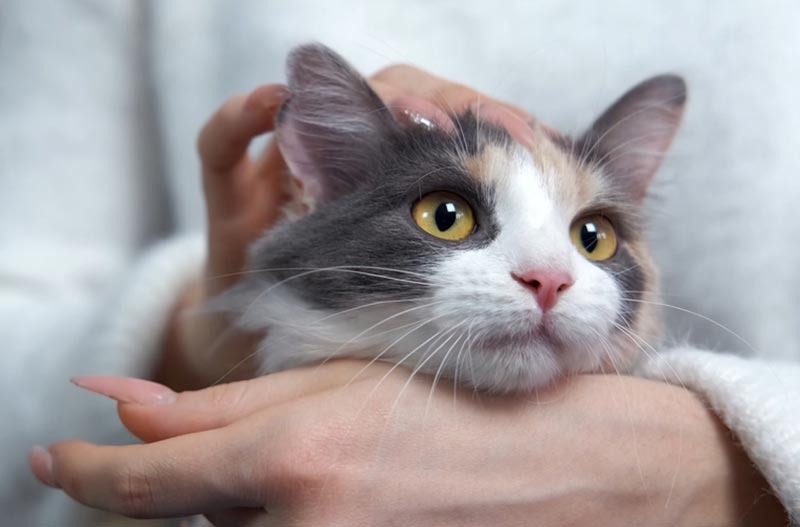
4. Stay Indoors
One of the most important things to do during Fourth of July celebrations is to keep your cats indoors. The sudden noises can easily cause a cat to run into traffic, where they could be in danger of getting hit. The Fourth of July is also the day when most pets in the US go missing, so keeping them inside is a smart choice.
5. Reassure Them
Try to set aside extra time with your pet on the Fourth of July and the days leading up to it so you can help reassure and comfort them when you notice them getting upset. Talking softly and sitting by them can be soothing to your pet, but don’t try to force them to come out if they are scared and hiding, as it might increase their anxiety.
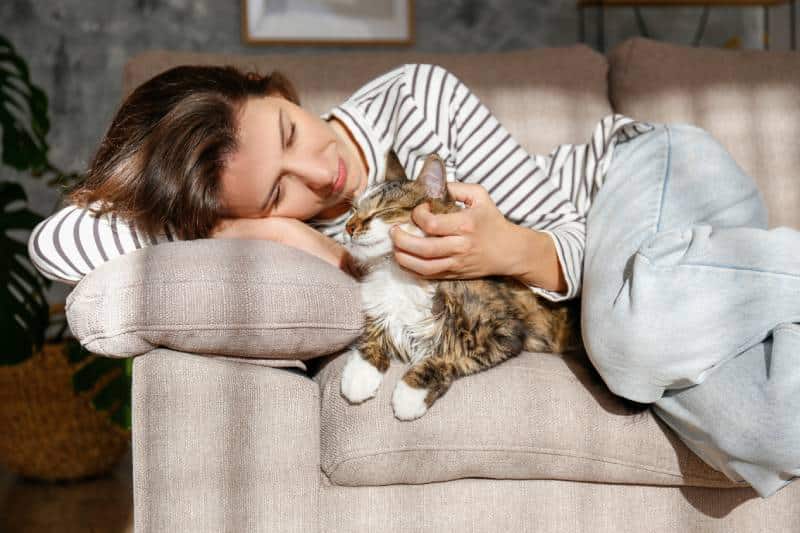
6. Act Normal
While it’s natural to get excited when fireworks start, making a big commotion might frighten your cat. Try to act as normally as possible to help send the message to your pet that there is no danger.
7. Close Your Windows and Doors
The summer months are warm, and it’s easy to forget to close your windows and doors when the fireworks start. However, doing so can dramatically cut down on the noise coming in from outside.
8. Use Calming Pheromones
Calming pheromones can be effective for many cats. Studies show that using commercial pheromones in your home can help your cat display less stress-driven behaviors, which will be especially helpful during the Fourth of July holiday. There are several brands available, so try out a few to see what works best for your pet.
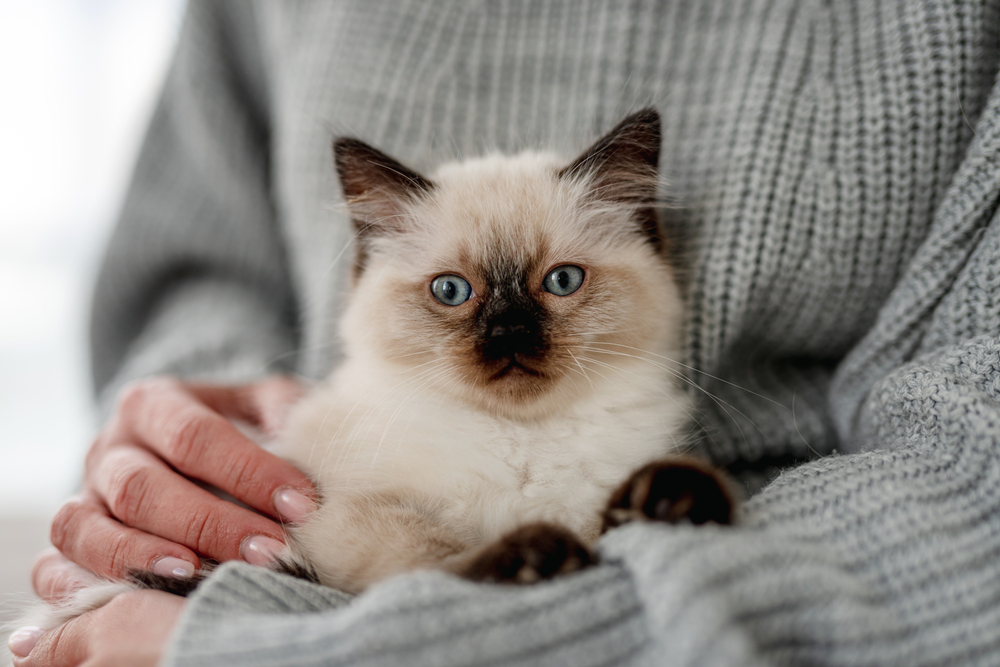
9. Give Pet Remedy a Try
Pet Remedy is a line of calming products that work by using a blend of natural essential oils, including valerian, vetiver, and clary sage, which act on the brain’s natural calming pathways to help reduce anxiety without sedation. Unlike the synthetic pheromone products we mentioned before, Pet Remedy works with the pet’s own neurochemistry to promote relaxation and a sense of well-being. For cats frightened by the loud noises and flashing lights of the 4th of July fireworks, using Pet Remedy as a plug-in diffuser or spray in their safe space can help create a more calming environment, allowing them to cope more comfortably with the stress.
10. Desensitize Your Cat Beforehand
If your cat seems especially afraid of loud noises like fireworks, you can try to slowly desensitize them to those sounds by listening to them in your home at gradually increasing volumes. There are many fireworks display videos on YouTube that you can play for your cat, starting at a low volume and gradually increasing it. After a while, your cat might not notice the real fireworks outside. Doing this at a scheduled time, like right after it gets dark, might also help your cat get into a routine of expecting loud noises at that time of day.
11. Talk to Your Vet
It can be a good idea to talk with your vet before the Fourth of July celebration to see if they have any advice that is specific to your cat.
If you need to speak with a vet but can't get to one, head over to PangoVet. It's an online service where you can talk to a vet online and get the advice you need for your pet — all at an affordable price!
12. Get Your Pet Microchipped
It’s a good idea to get your cat microchipped, which can help you find your pet if they get lost over the holiday. People often take found animals to a vet or shelter, where they will be checked for a microchip so their owners can be contacted. With up to 15% of cats getting lost every 5 years, getting your pet microchipped is a vital part of keeping them safe.
13. Ensure That Your Cat Has Proper ID
While many cats don’t like to wear collars, they can help identify your cat because you can add identification tags. These will help anyone who finds your pet know how to contact you directly, so you can retrieve them without having to go to a vet or shelter first. You can even add a GPS or Bluetooth tag tracker to ensure you always know their location.
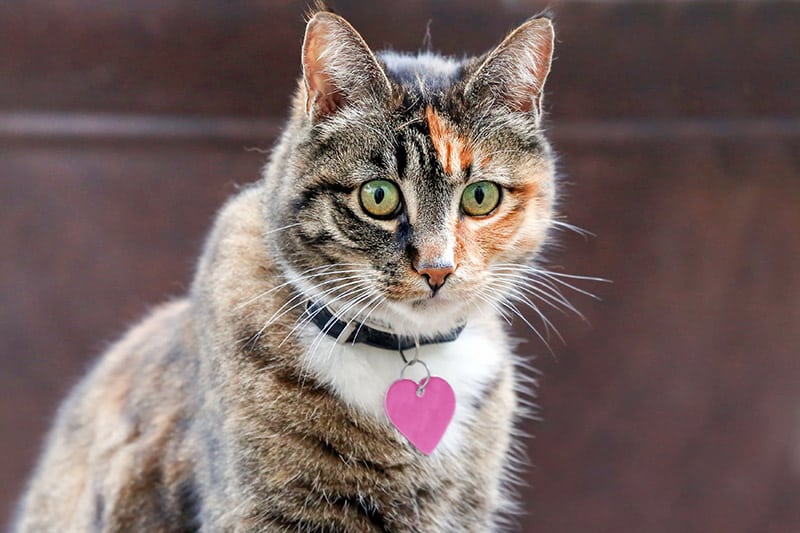

Frequently Asked Questions
Can I Use a Sedative to Help Calm My Cat?
If you think that your cat might need a sedative to get through the Fourth of July holiday, it’s best to talk it over with your vet. If it’s appropriate, they can prescribe the proper medication and instruct you on how to administer it.
When Should I Start Preparing My Cat for Fireworks?
It would be best if you got your pet microchipped as soon as possible. You can try desensitizing them to increasingly loud noises starting a few weeks before the event, and it can be a good idea to spend extra time playing with them to help tire them out on fireworks days.
Should I Feed My Pet Before the Fireworks?
Some animals get upset stomachs or even diarrhea if they get upset too soon after they eat. Therefore, it can be a good idea to feed them several hours before the fireworks or wait until afterward to prevent any problems, especially if your cat is still a kitten or seems especially frightened.

Summary
Unfortunately, most cats will run and hide when the fireworks begin each year on the Fourth of July, and there isn’t much that we can do about it. In many cases, the best thing to do is provide plenty of safe spaces that they can get to quickly once the noise starts. Then, sitting by them, talking softly, and acting normally can help calm them down. Closing all your windows and drowning out the noise with soft music or white noise can also help.
Keep your cat indoors and microchip them to increase your chances of finding them if they do escape. Desensitizing them to loud noises, using calming sprays or synthetic pheromones, and consulting with your veterinarian will also help ensure that your cat gets through the holiday more easily.
Featured Image Credit: Light Hound Pictures, Shutterstock
